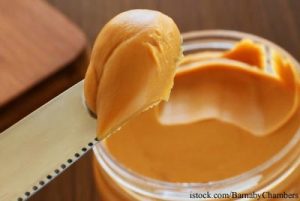The Salmonella outbreak linked to JEM raw brand sprouted nut butter spreads has sickened at least 11 people in 9 states. This is not the first time nut butters have caused illness. Why are these products, which are relatively low in moisture and not usually considered a food safety risk, harboring pathogenic bacteria?
 According to the University of California-Davis, tree nuts can be a vehicle for foodborne pathogens. The tree nuts are too dry to support the growth of bacteria, but Salmonella and E. coli bacteria cause illness with only a few present. Tree nut handlers are supposed to consider Salmonella and STEC bacteria a major public health risk in their HACCP plans.
According to the University of California-Davis, tree nuts can be a vehicle for foodborne pathogens. The tree nuts are too dry to support the growth of bacteria, but Salmonella and E. coli bacteria cause illness with only a few present. Tree nut handlers are supposed to consider Salmonella and STEC bacteria a major public health risk in their HACCP plans.
Any raw food is a risk for bacteria, whether it’s raw nuts, poultry, beef, seafood, or produce. Contamination can happen in the field, during harvest, transportation, or processing, from wild animals, polluted irrigation water, or ill workers. Many nuts are harvested after they fall to the ground, or are mechanically or hand shaken. The nuts then mix with soil and plant debris and become contaminated. And during processing, water is used to remove or soften shells; this can allow the bacteria to grow and spread.
The water activity in tree nuts is less than 0.7; the water level considered necessary for bacterial growth is 0.91. But scientists have learned that in order for a food to make someone sick, microbial growth doesn’t need to occur. In fact, Salmonella and E. coli bacteria survive very well on foods under low moisture conditions and even during refrigeration and freezing.
The UC-Davis report states that “once ingested, the high fat content in tree nuts may protect pathogens from stomach acids allowing passage of viable organisms to the intestine.” In other words, the bacteria just need to survive on the nuts; they don’t need to grow to make someone sick. Once they get into your stomach, the character of the nuts can support illness.
Many nuts are roasted after harvest and before sale and processing into nut butters. This kill step will destroy any remaining bacteria, even though pathogenic bacteria are more resistant to heat when in a dry food environment. Nuts must usually be roasted at high temperatures to kill any bacteria.
Raw spreads are more problematic, since they do not have a kill step, so bacteria can easily survive. When those raw nuts are soaked so they sprout, bacteria can grow and flourish, just as they do when seeds are sprouted.
In general, it’s best that anyone who falls in a high risk group for food poisoning – small children, the elderly, and those with chronic health problems and compromised immune systems – should avoid eating raw nuts butters, just as they avoid raw sprouts and raw and undercooked meats and unpasteurized dairy products.
The outbreak linked to recalled JEM raw sprouted nut butters is caused by Salmonella Paratyphi B variant L(+) tartrate (+). All eight of the ill persons interviewed ate a nut butter before they got sick; six of those persons ate JEM Raw brand sprouted nut butter spread.
The symptoms of a Salmonella infection include abdominal cramps, diarrhea that may be bloody, nausea, vomiting, fever, chills, headache, and muscle pains. The symptoms usually begin six to seventy-two hours after exposure. If you have eaten nut butters, especially JEM brand raw sprouted nut butters, and have experienced these symptoms, see your doctor.




